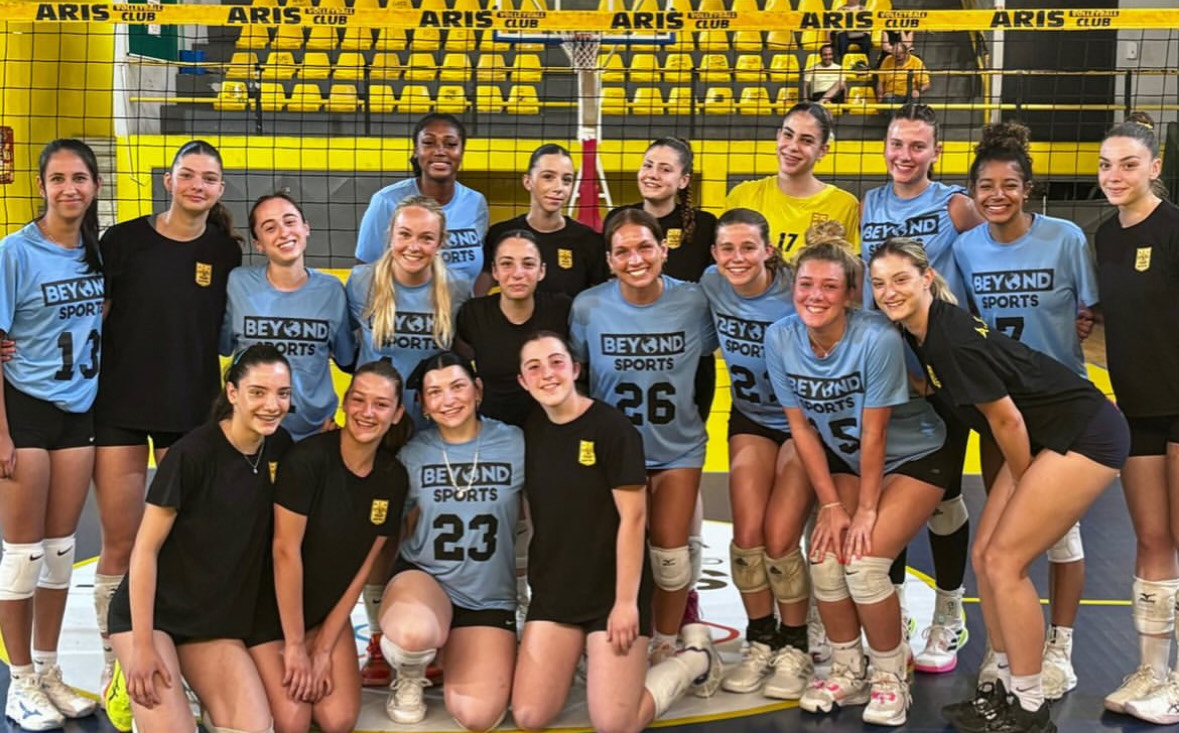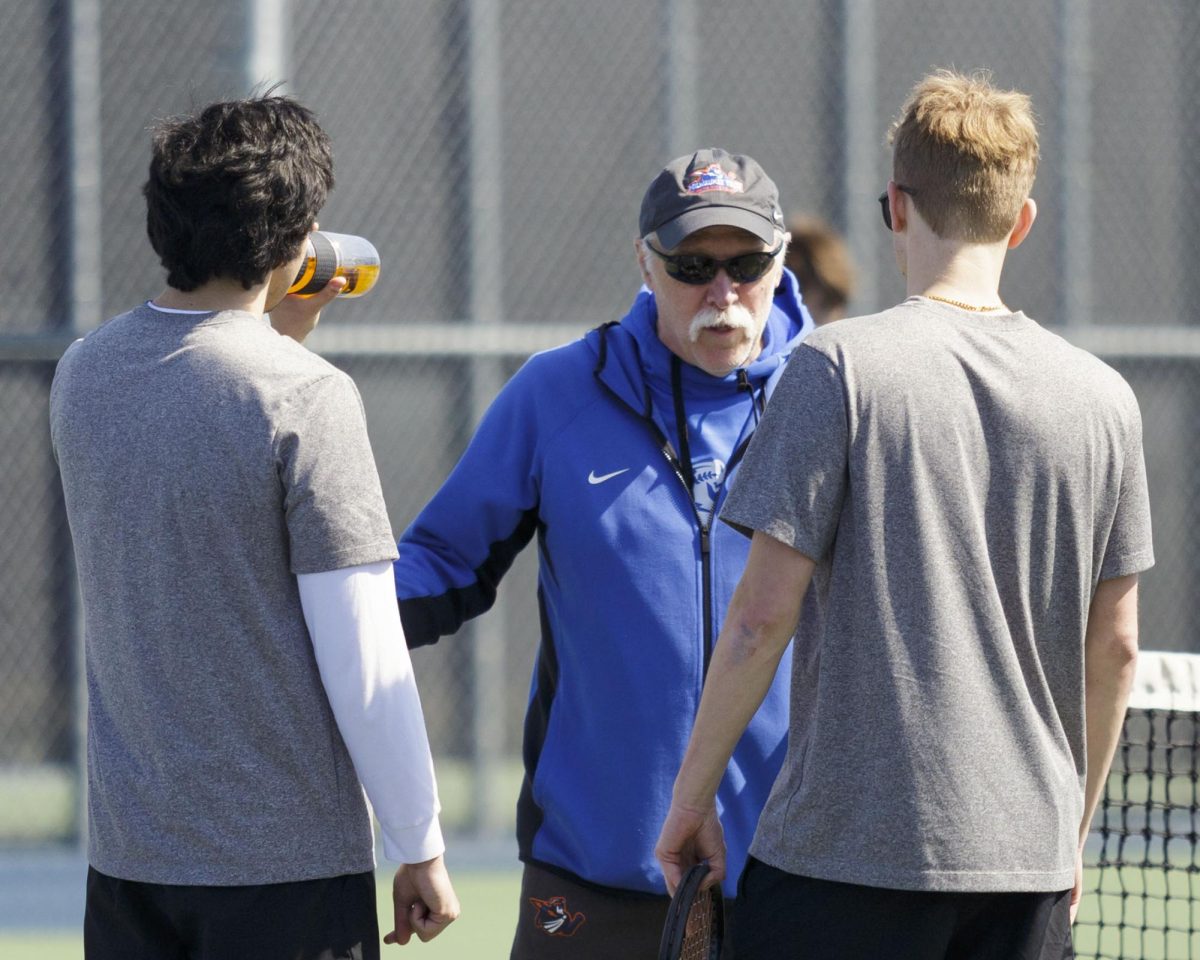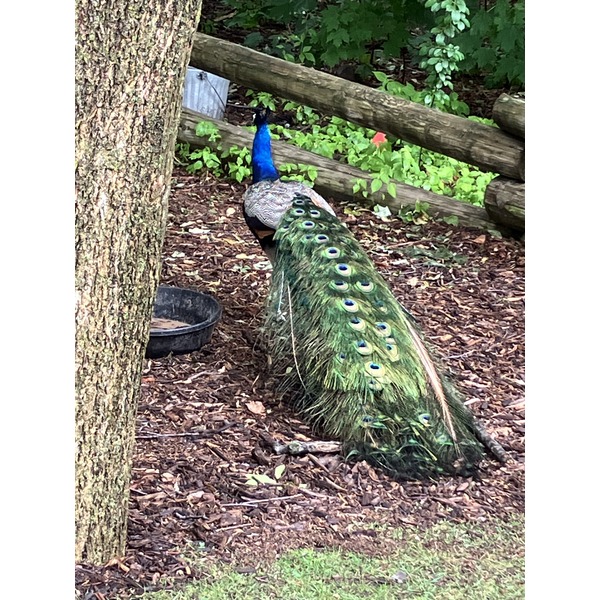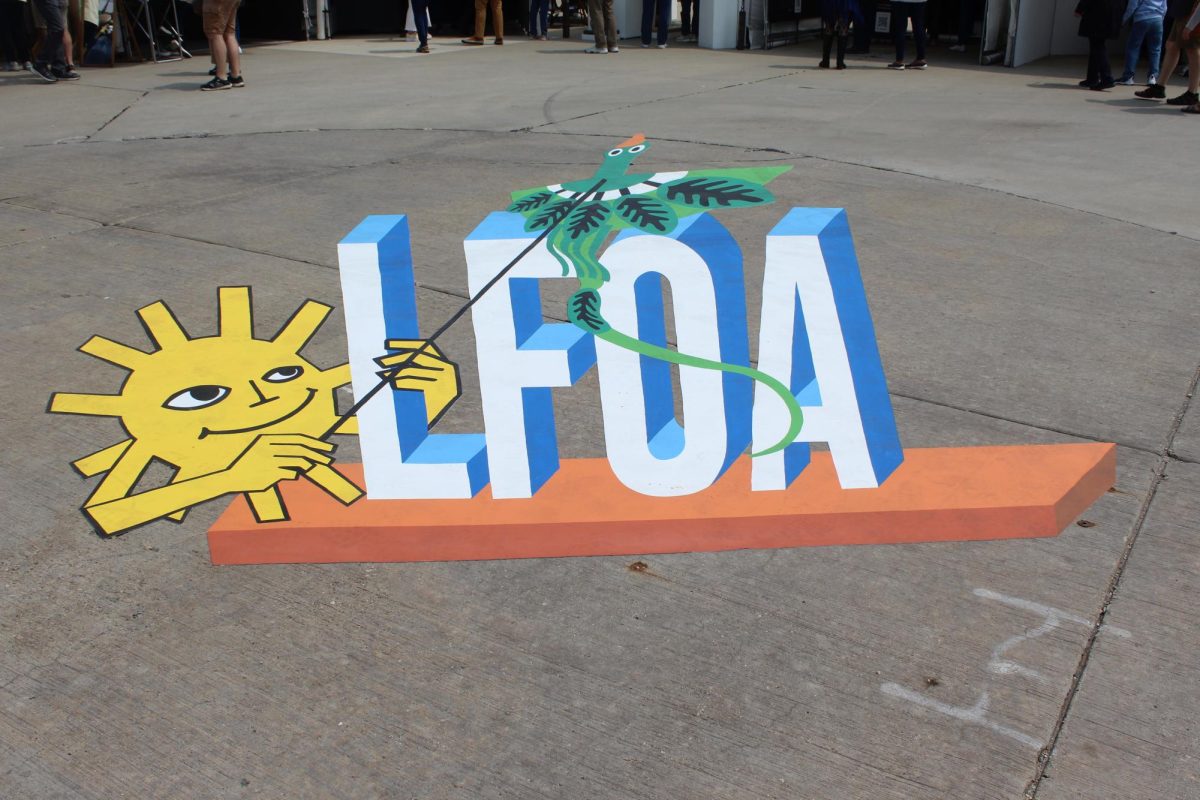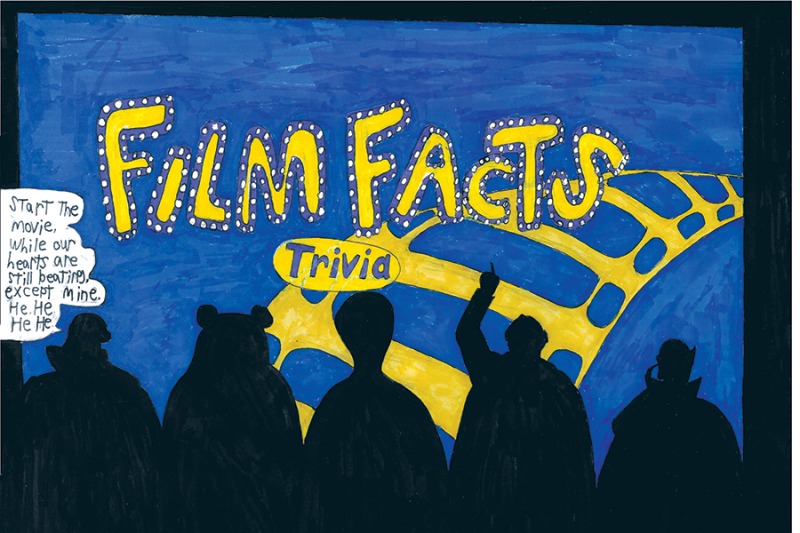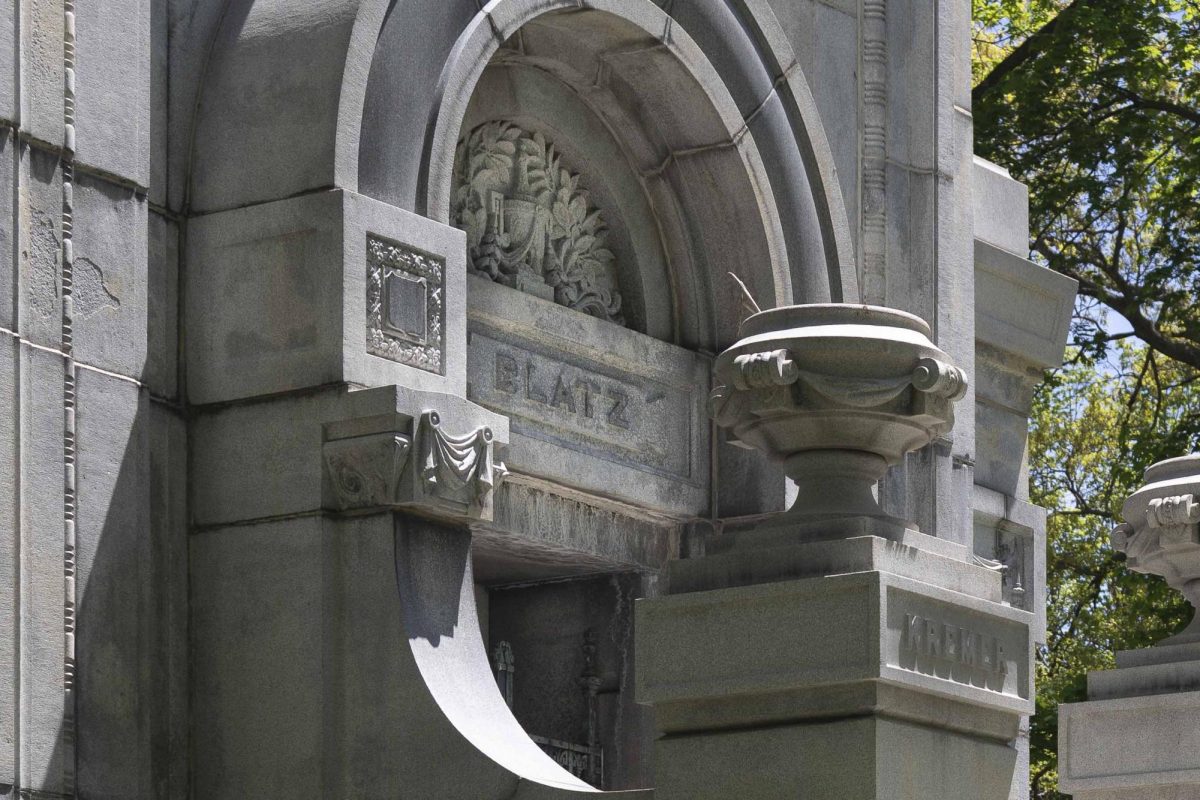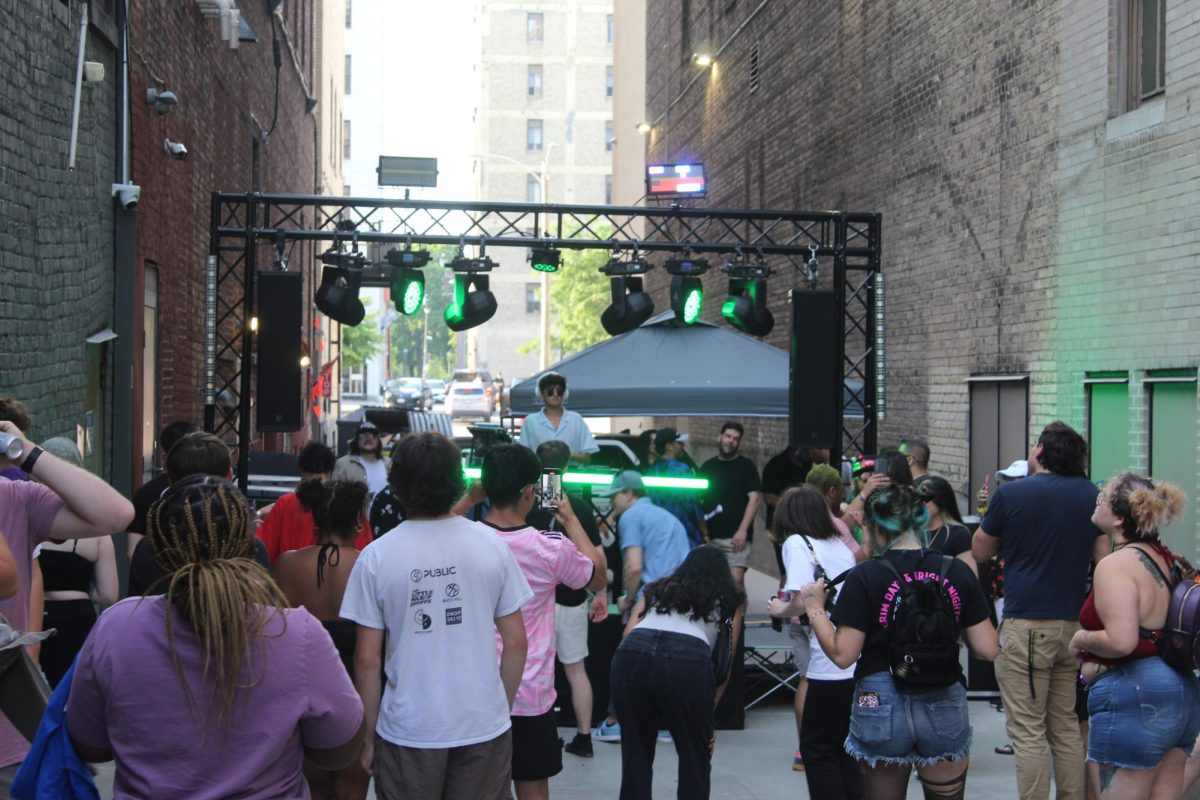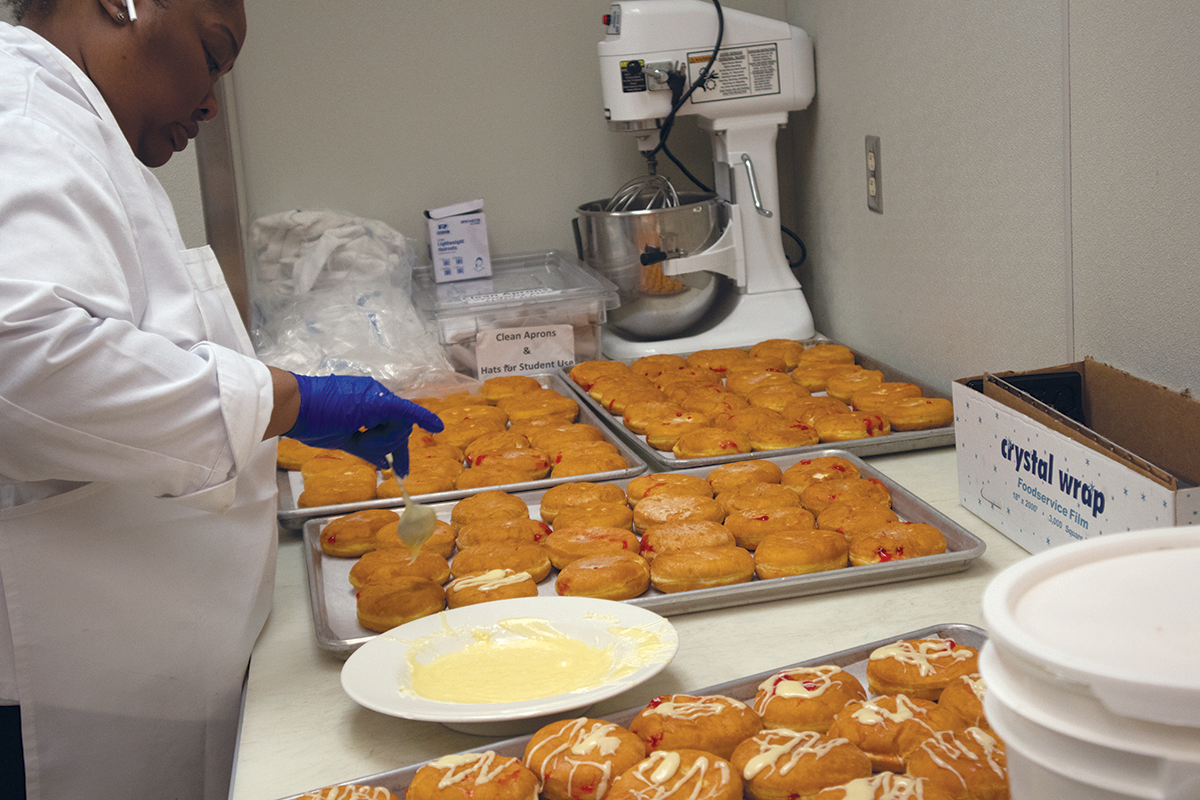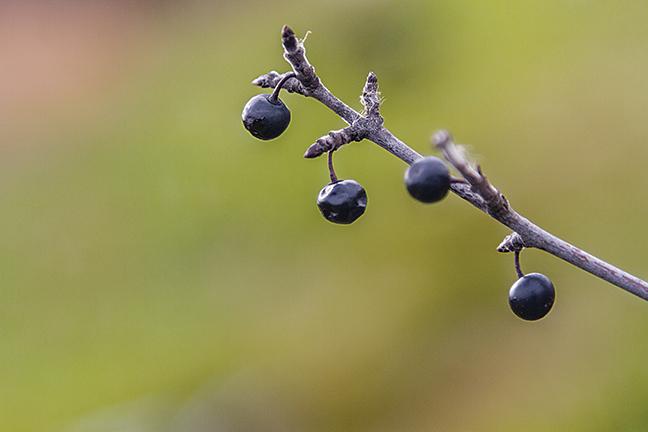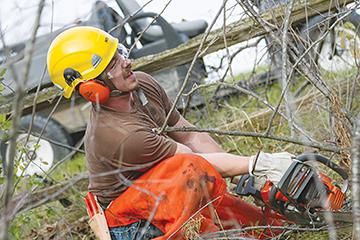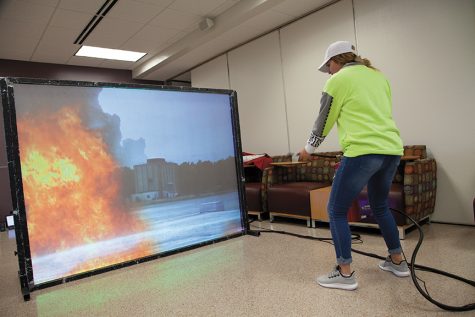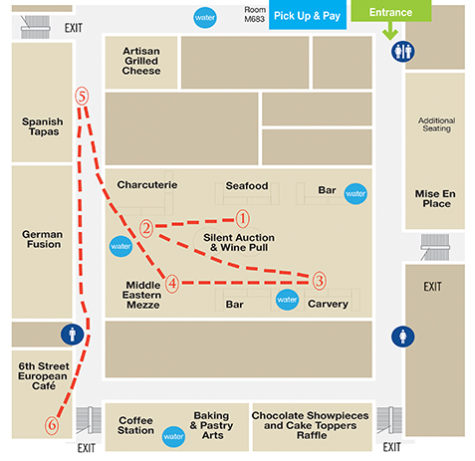Exotic buckthorn battle being waged for sustainability
A major threat to Wisconsin ecosystems, the exotic European buckthorn plant is a troublesome bully of a plant that can easily spread throughout wooded areas. The plant destroys wildlife habitats, replaces natural vegetation, and is very invasive. These plants have no competition from insects or diseases that native plants are vulnerable to, so they have a built in immune system which makes them very hearty. The Horticulture Club and the native plant study class have battled these plants for the last two years. More than a dozen students and faculty attacked the buckthorn along Highland Road with weed wrenches and herbicides to halt the take over of the native plants in that area. Buckthorn is a shrub that can easily grow eight to 15 feet tall and gain 1″ to 2″ in diameter. The plant is easily recognizable in late fall which makes this a perfect time to remove it. Although the plant can be a problem to farmers it usually is not because their land is plowed frequently and lots of herbicides are used to grow crops. Buckthorn berries is a favorite food of birds, but it acts as a natural laxative for their digestive system, which allows them to spread the seed germs very easily. The horticulture program promotes sustainability and prefers to use the least harmful methods to combat these plants. Started in 1976, the landscape horticulture program is an associate degree program at the Mequon campus. The degree prepares students for careers in the horticulture/landscape industry, and has three tracks: design, landscape construction or landscape maintenance and arboriculture. Several certificate programs are available which take from nine to 17 credits to complete and may even be completed in one semester. Landscape design technology-CAD only takes nine credits to finish while the arboriculture certificate needs 17 credits. The arboriculture program also prepares students to obtain the Arborist designation through the International Society of Arboriculture. These certificate programs place students on a fast track to employability, and are created with input from industry leaders so that MATC graduates are often first hired. The horticulture program has plant sales that are very popular with the community. For Christmas, they sell hearty poinsettias and begonias. At Easter they sell Easter lilies and house plants. Early May, for the spring sale, they have annuals, perennials, and vegetables. The program instructors are available for speaking engagements in the community. They also offer tree pruning, a greenhouse program, and a prairie burn every spring. If you are attempting to remove the exotic buckthorn plant from your land or area, start from the least amount of plants and move toward the more dense area to help control the population and restrict new growth. Remove the plants with berries first, then grind up or bury the plants. Use a 20 percent Roundup solution or Glyphosate herbicide. Although this method is effective, removal disturbs the soil. So be sure to tamp down the soil to make a firm surface, which discourages the seed travel. For more information contact Carol Bangs, instructor of the native plant study class at the Mequon campus.







